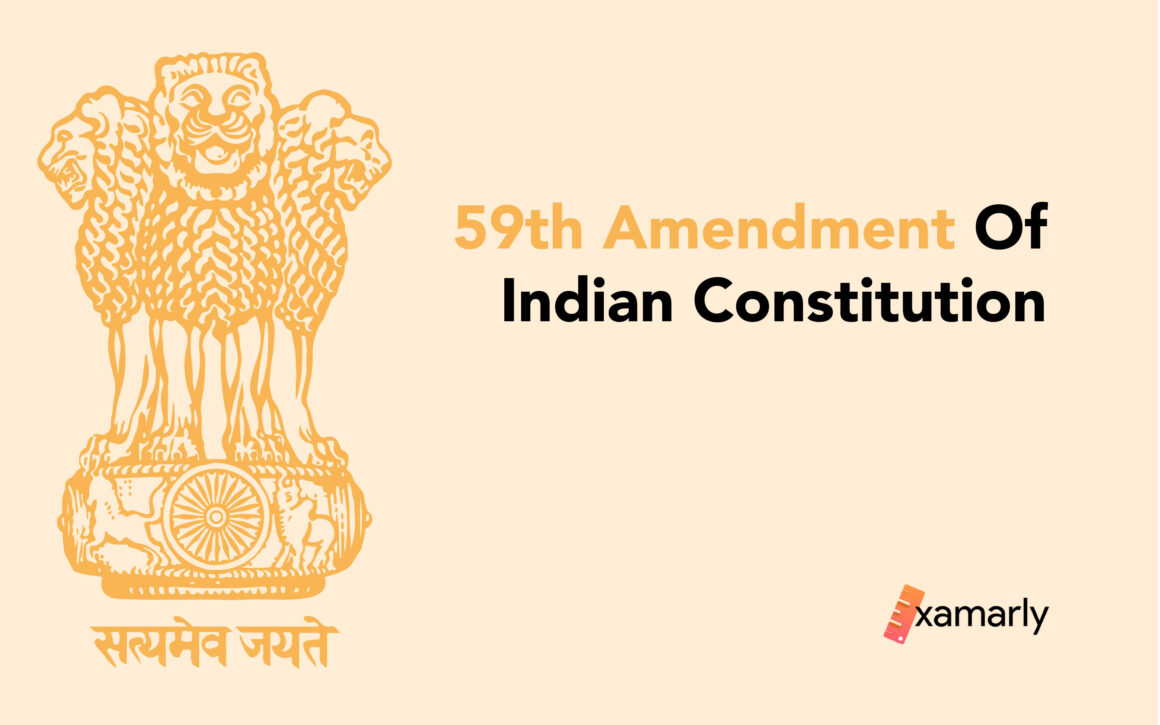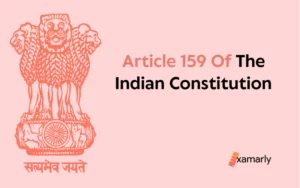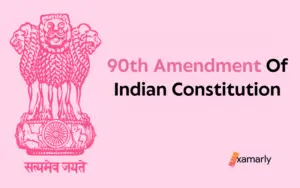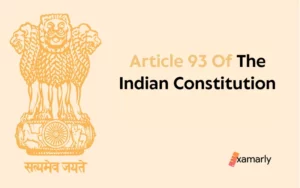The 59th amendment of the Indian Constitution is also known as the Constitution (Fifty-Ninth Amendment) Act, 1988. Under this act, Article 356 of the Indian Constitution was amended to allow the President’s rule in the state of Punjab for a period of up to three years.
It also added Article 359A to the Indian Constitution. According to this article, it allowed the proclamation of an emergency in Punjab or certain districts of Punjab, whenever required.
Read on to learn more about this amendment such as its salient facts, features, date of enactment, its Statement of Objects and Reasons, important provisions, etc.
Salient Features and Facts
The fundamental rights to life and liberty, which are guaranteed by Article 21[iii] of the Indian Constitution, cannot be suspended anywhere in the country, not even in an emergency.
This revision, meanwhile, restricted the declaration of an emergency in situations involving war, external attack, or armed rebellion. It specifically left out internal conflicts as one of the reasons.
The new amendment restores internal disturbances as a reason for an emergency and grants the Central Government the power to annul Article 21. Therefore, the Fifty-Ninth Amendment Act of the Indian Constitution needed to be enacted for ensuring peace in the state of Punjab.
Date Enacted
The Fifty-Ninth Amendment Act of the Indian Constitution was enforced on March 30th, 1988.
See Also – 52nd Amendment Of The Indian Constitution
Statement of Objects and Reasons
The Statement of Objects and Reasons that was a part of the Constitution (Fifty-ninth Amendment) Bill, 1988, has been summarized below.
According to Article 356, clause (5), the House of Parliament does not have the authority to pass a resolution that agrees to the prolongation in force of a Presidential Proclamation under clause (1) of the said article for a period exceeding a year.
This applies unless the specified conditions mentioned in the clause are adhered to. The Proclamation made concerning the State of Punjab expires after a year-long period. The expiry date is May 10th, 1988.
Keeping in mind the prolonged disturbed scenario of Punjab, the continuity of the said Proclamation in Punjab over the limited period of one year is necessary. This is because anti-national activities, anti-national forces, and activities of terrorists are on the rise which costs the lives of innocent children, women, and men.
In addition to that, because of the virtual impossibility of the Punjab State Legislative Assembly to form a popular Government in the current situation, it had to be dissolved. The extension of the said Proclamation can be facilitated through the amendment of Article 356(5) of the Indian Constitution.
Following clause (4) of that article, it permits the extension of three years, if necessary.
It is felt that the carrying on of the Proclamation may not be effective after May 10th, 1988. This is because terrorist activities have been on the rise.
A partial Emergency may be declared in the entire State of Punjab or specific districts of the State if deemed necessary. This may be done by invoking the provisions of Article 352 of the Constitution.
It may be inappropriate to use the expression “armed rebellion” in the current circumstances to declare a Proclamation in that State if such a situation arises. The aforementioned term is included in that article and is a potential cause for the declaration of Emergency. (In a situation involving Internal Emergency, armed rebellion alone can be resorted to).
Therefore, for the State of Punjab, it is felt that article 352 may be revised accordingly. This may facilitate the inclusion of the term “internal disturbance”. This term could be one of the factors that could threaten the integrity of India by internal disturbance emerging in any region within the territory of India.
After that, action can be taken under that article, even at a later time if the need arises. Ever since the enforcement of the Constitution the term “internal disturbance” was one of the factors mentioned in the article. This continued till it was revised as the Constitution (Forty-fourth Amendment) Act, 1978.
As a result of this, Articles 358 and 359 are suggested to be altered to enable automatic suspension of Article 19 of the Indian Constitution. This is to be followed by the President issuing an order for the suspension of the functioning of other provisions held in Part III as per Article 359, (excluding Article 20).
This applies in a situation where a Proclamation of Emergency is made based on internal disturbance concerning the State of Punjab as a whole or any part of it.
The suggested amendments are put forward to put an end to terrorist activities more effectively in the State of Punjab. Therefore, the powers that have been proposed to be rendered by these modifications would not be extended to any period more than necessary for obtaining the aforesaid objective.
The revision suggested in Articles 352, 358, and 359 have been made to be effective for a limited time. The period is from the date of enactment of the Amendment up to two years only.
The above objectives are what the bill aims to accomplish.
Relatable articles: Article 358 of the Indian Constitution
Important Provisions in the 59th Amendment of the Indian Constitution
This amendment act was passed in the Thirty-ninth Year of the Indian Republic by the Parliament.
This Act aimed to modify Article 356 of the Constitution of India. In the said article, under clause (5), in the proviso, the following condition shall be added in its place:-
It is provided that nothing in that clause applies to the Proclamation declared under clause (1). Issued on May 11th, 1987, it concerned the Punjab state.
A new article shall be added to the Indian Constitution, called 359A. – (1) This is to be inserted after article 359, namely:-
359A. The application of this section to Punjab state.- This section shall be subjected to the following revisions, despite anything mentioned in the Constitution, concerning Punjab state, namely:-
(a) in article 352,-
(i) in clause (1),-
(A) The following lines shall be put in place in the opening section,:-
If the President senses a situation of grave emergency by which-
(a) the safety of any part of the territory or the nation is at threat, by any means, be it war or external conflict or armed violence; or
(b) internal conflicts arise in any area or the whole of Punjab that threaten the integrity of India,
he may decide to declare through a Proclamation, to that effect concerning such parts or the whole of Punjab that may be specifically mentioned in the Proclamation;
(B) in the Explanation,-
(1) the words ” or that the integrity of India is threatened by the internal disturbance in the whole or any part of the territory of Punjab,” shall be inserted and must follow the words “armed rebellion”;
(2) the words “or disturbance” must be included after the words “or rebellion”;
(ii) the words “or internal disturbance” shall be introduced after the two places where the words “armed rebellion” occur in clause (9)
(b) the words “or by armed rebellion, or that the integrity of India is threatened by an internal disturbance in the whole or any part of the territory of Punjab,” shall follow the words “or by external aggression” in clause (1) of article 358;
(c) in Article 359, the expression “Article 20” shall replace “Articles 20 and 21”, where it is mentioned in two places;
(2) The modifications done through sub-section (1) to the Constitution shall no longer be functional after its expiration limit of two years from the enactment of this Act, except for the actions taken or not taken before that time.
Summing Up
Denying the citizens of Punjab their right to life and freedom while allowing other states in the country to enjoy theirs makes little political sense.
Special provisions along with regular constitutional amendments to the constitution such as the Fifty-Ninth Amendment Act of the Indian Constitution are necessary to improve its insufficient provisions and address emerging demands, such as the addition of new rights.
Otherwise, the wording of a constitution cannot adapt to changing political conditions and societal requirements.
FAQs on the 59th Amendment of the Indian Constitution
What is the Constitution (Fifty-Ninth Amendment) Act, 1988 about?
The Fifty-Ninth Amendment Act of the Indian Constitution rendered power in the hands of the Central Government to declare an Emergency in the state of Punjab. It can do so whenever the need arises. In addition to that, the President’s rule can be continued for three years. Previously, the maximum period for this rule was of two years.
Which articles of the Indian Constitution contributed to the enactment of the Fifty-Ninth Amendment Act of the Constitution of India?
For the Fifty-Ninth Amendment Act of the Constitution of India to be enacted, Article 356 was amended and Article 359A was added to the Constitution.
In which year did the Fifty-Ninth Amendment Act of the Indian Constitution take place?
The Fifty-Ninth Amendment Act of the Indian Constitution was enacted in the year 1988.






